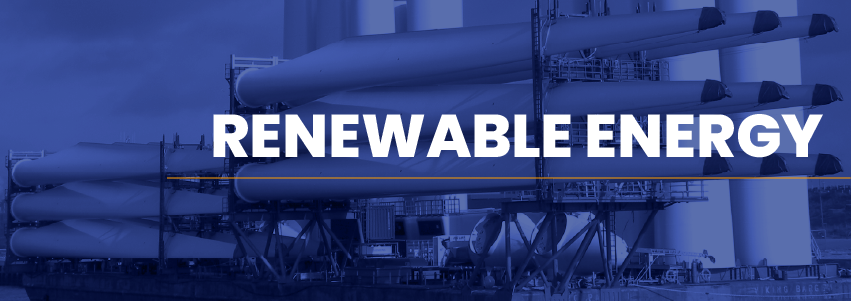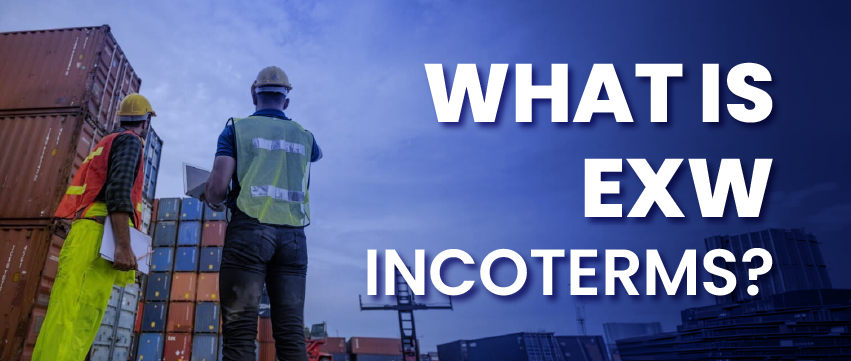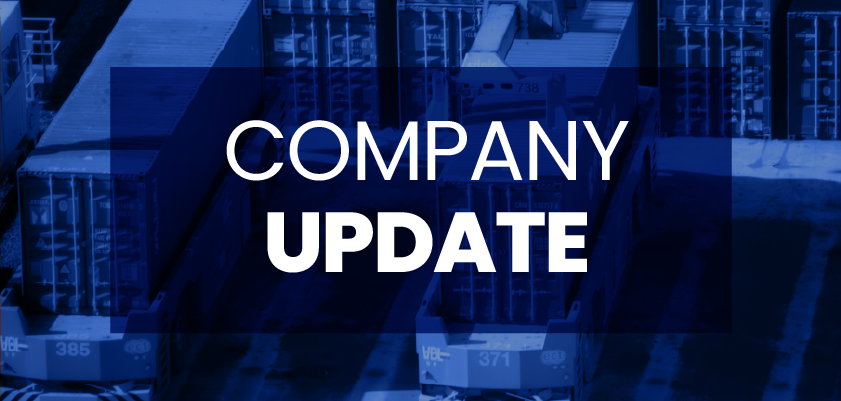Renewable Energy and Project Cargo Freight Forwarders
The world is rapidly shifting towards renewable energy sources, driven by the urgent need to reduce dependence on fossil fuels and address climate change. This transition requires an efficient and reliable supply chain to deliver the components, equipment, and infrastructure that power the renewable energy industry. Project cargo freight forwarders play a key role in this sophisticated logistics eco-system, handling oversized and heavy-lift cargo, ensuring timely deliveries, and supporting the scaling up of renewable energy solutions globally.
List of Renewable Energy Logistics Companies in OPCA
The Overseas Project Cargo Association (OPCA) is a global network of project cargo logistics professionals specializing in the transportation of heavy, oversized, out of gauge, and project cargo across all modes of shipping, including air, sea, land, and rail freight. Within the network, plenty of members focus specifically on renewable energy logistics. These companies provide services ranging from wind turbine transportation to the logistical challenges of installing large-scale solar power systems.
OPCA's members are equipped with the expertise, infrastructure, and resources necessary to support the renewable energy sector, as well as petrochemical plants and power generation. By cooperating with specialized renewable energy freight forwarders, companies can ensure that their equipment, whether it is wind turbines, solar panels, or power grid components, reaches its destination safely and efficiently.
OPCA for Reliable and Fast Renewable Energy Transport Network!
As the renewable energy shipping continues to grow, it presents vast opportunities for logistics companies to expand their service offerings. Joining OPCA’s Renewable Energy Freight Network connects freight forwarders with key players in the renewable energy supply chain, enabling them to collaborate on large-scale projects, share best practices, and access a global community.
Being part of the OPCA network means leveraging a global reach with local expertise. Whether it’s managing the complexities of overseas transportation or ensuring compliance with environmental regulations, the members are well-organized to handle the most challenging logistics tasks. Companies in the renewable energy sector can benefit from the combined experience of project cargo masters who understand the unique demands of this evolving industry.
Compare Renewable Energy Freight Forwarders
Choosing the right freight forwarder for renewable energy projects requires evaluating several factors, such as the company’s expertise in handling oversized cargo, ability to plan complex logistics routes, and capacity to provide end-to-end solutions. The members have proven records in the network.
Oversized Cargo Handling
Renewable energy components such as wind turbine blades, nacelles, and solar panels are often large and heavy. Forwarders specializing in this type of cargo must have the necessary equipment, including cranes, transport engineering expertise, and suitable storage facilities.
End-to-End Logistics Solutions
From project planning and route optimization to last-mile delivery, some freight forwarders offer integrated solutions that cover the entire logistics process. This can reduce costs, improve efficiency, and ensure that projects stay on schedule.
Compliance and Safety
Renewable energy projects often require adherence to strict safety and environmental regulations. Forwarders must demonstrate a strong track record of compliance with health, safety, security, and environmental (HSSE) standards to minimize risks and ensure smooth operations.
Global Reach with Local Expertise
Renewable energy projects often span multiple countries, requiring forwarders to navigate complex customs processes and local regulations. The ability to work across diverse geographies with localized expertise is a key factor in choosing a freight forwarder.
Streamlining Logistics for the Renewable Energy Industry
The role of renewable energy in global trade is becoming increasingly important. As the world moves toward cleaner energy, supply chains must adapt to meet the growing demand for renewable power generation. The logistics industry is at the forefront of this transformation, ensuring that the components needed for wind, solar, and other renewable energy technologies reach their destinations on time and within budget.
The logistics challenges associated with renewable energy include the freight of large, bulky, and often delicate equipment across varied terrains and through complex regulatory environments. Project cargo freight forwarders are vital in coordinating the shipping of these goods, managing everything from route planning and equipment handling to customs clearance and installation logistics.
Moreover, the growing demand for renewable energy is driving innovation in logistics. Freight forwarders are increasingly using advanced technologies, such as smart data and route optimization software, to improve the efficiency of transport and reduce costs. These innovations not only support renewable energy projects but also contribute to broader sustainability goals by helping to reduce the carbon footprint of logistics operations.
Frequently Asked Questions (FAQs) About Renewable Energy Transports
What types of renewable energy equipment are most commonly transported?
Renewable energy freight forwarders handle a range of oversized and heavy-lift cargo, including wind turbine blades, solar panels, nacelles, towers, and power grid components.
What factors should be considered in transporting renewable energy equipment?
Several key factors must be considered, including oversized cargo handling, route planning, compliance with safety regulations, and the ability to offer integrated logistics solutions. Working with experienced forwarders ensures the seamless transportation of renewable energy components.
How do you choose the right logistics partner for renewable energy transportation?
Choosing the right logistics partner for renewable energy transportation involves evaluating several factors. Look for a partner with experience in handling oversized cargo like wind turbine blades and solar panels, ensuring they have the necessary equipment and expertise. The partner should offer end-to-end logistics solutions, from planning and route optimization to last-mile delivery. It's essential that they comply with safety, environmental, and customs regulations. Additionally, the partner should have global reach with local expertise, enabling them to navigate complex regulations and infrastructure challenges. Finally, check the partner's track record in the renewable energy sector through client references and past project successes.
What factors should be considered in transporting renewable energy equipment?
Several key factors must be considered, including oversized cargo handling, route planning, compliance with safety regulations, and the ability to offer integrated logistics solutions. Working with experienced forwarders ensures the seamless transportation of renewable energy components.
What are the main challenges in renewable energy logistics?
Key challenges include managing oversized cargo, navigating complex customs processes, adhering to environmental regulations, and ensuring the timely delivery of components across various geographies and countries.
How do renewable energy logistics companies ensure the safe transportation of sensitive equipment?
Renewable energy transportation companies use specialized equipment such as cranes, custom packaging, and transport engineering expertise. They also adhere to strict health, safety, security, and environmental (HSSE) standards to minimize risks during transportation.
Why is route planning important in renewable energy logistics?
Route planning is critical for ensuring the timely and cost-effective delivery of large, heavy components. Proper planning minimizes delays, reduces transportation costs, and avoids potential infrastructure limitations.
How does OPCA support renewable energy logistics companies?
OPCA connects freight forwarders with global networks, providing them with access to expertise, best practices, and resources to handle renewable energy projects efficiently and safely.
By emphasizing renewable energy transportation, green energy shipping, and clean energy logistics companies, OPCA’s network members are well-prepared to support the evolving needs of the renewable energy sector globally. From transporting wind turbines to handling complex renewable energy logistics, the expertise within the network ensures success in scaling up green energy initiatives worldwide.
_logo.webp)



